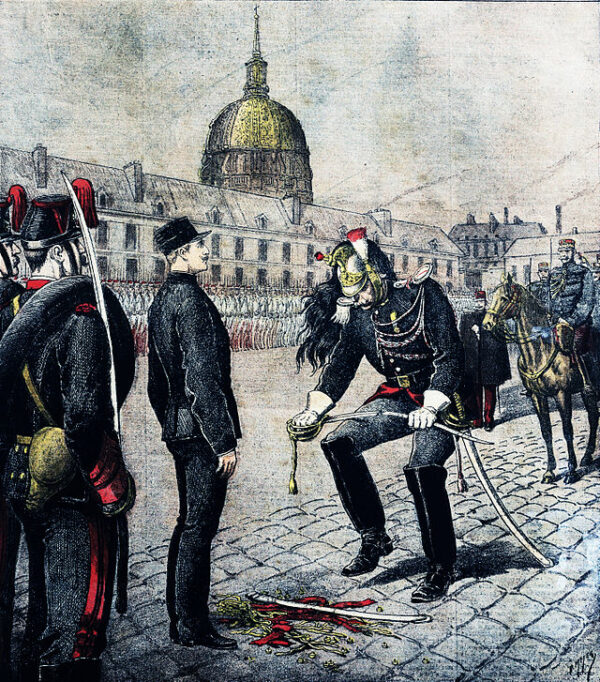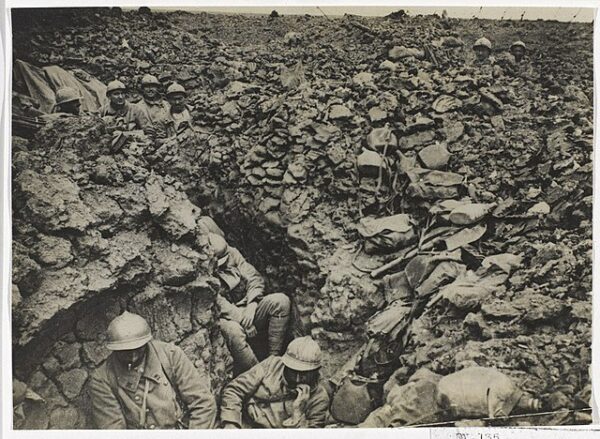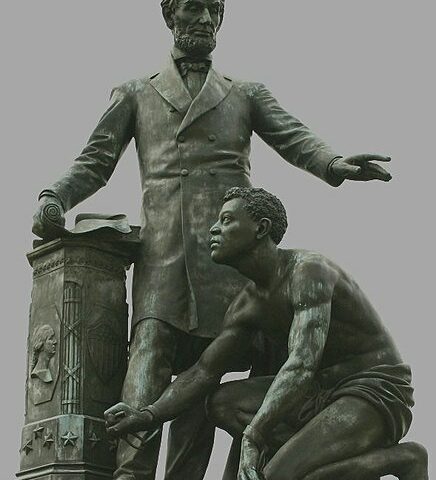On January 5, 1895, Alfred Dreyfus, a French army office, was stripped of his rank and sentenced to life imprisonment on Devil’s Island, a penal colony off the coast of French Guiana.
The Dreyfus Affair was a political scandal that divided France from the 1890s to the early 1900s. It centered around the wrongful conviction of Alfred Dreyfus, a Jewish French army officer, for treason. In 1894, French military intelligence discovered a document indicating that a French officer provided military secrets to the German Embassy in Paris. Suspicion quickly fell on Dreyfus, who was the only Jewish officer on the General Staff. Despite weak evidence, Dreyfus was convicted of treason in a secret military court-martial, largely due to prevailing anti-Semitic attitudes within the army and the broader French society.
The harsh conditions of his imprisonment and the questionable nature of his trial attracted widespread attention. In 1896, evidence came to light identifying the real traitor as Major Ferdinand Walsin Esterhazy. However, the military, unwilling to admit its mistake, acquitted Esterhazy after a quick and secret court-martial, while Dreyfus remained imprisoned.
The Affair took a dramatic turn when Lieutenant Colonel Georges Picquart, the new head of military intelligence, found further evidence supporting Dreyfus’s innocence and Esterhazy’s guilt. Instead of being hailed for his discovery, Picquart was transferred to a remote post in Tunisia and later imprisoned for violating military secrecy. The military’s efforts to suppress the truth sparked a public outcry, leading to a passionate debate about justice and anti-Semitism in France.
The case split France into two camps: the Dreyfusards, who sought to exonerate Dreyfus and uphold principles of justice and equality, and the anti-Dreyfusards, who were typically nationalist, conservative, and often anti-Semitic, and who believed that the army could do no wrong. The Dreyfusards included prominent figures like the writer Émile Zola, who penned the famous open letter “J’accuse…!” in 1898, accusing the government and military of a massive cover-up. The letter was published on the front page of the newspaper L’Aurore and led to Zola’s conviction for libel, which he fled to England to escape.
The Dreyfus Affair eventually led to a retrial in 1899, where Dreyfus was again found guilty, albeit with extenuating circumstances, and was pardoned by the President of France, Émile Loubet. However, it was not until 1906 that Dreyfus was fully exonerated and reinstated as a major in the French Army. The Affair had lasting effects on French society and politics, including the solidification of the French Republic, the separation of church and state in 1905, and the rise of political movements on both the left and the right. It remains a seminal example of miscarriage of justice fueled by institutional anti-Semitism, and its lessons continue to resonate in discussions about civil rights and the fallibility of judicial systems.






